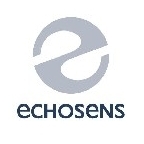Team:Paris
From 2009.igem.org
Christophe.R (Talk | contribs) (→Collaborations and Visitors) |
Cha.olivier (Talk | contribs) (→Navigation) |
||
| Line 141: | Line 141: | ||
Here we are ! You have some problems to navigate in our wiki ?? Just look at [[Team:Paris/navigation#top | this page]], and we hope it will help you. | Here we are ! You have some problems to navigate in our wiki ?? Just look at [[Team:Paris/navigation#top | this page]], and we hope it will help you. | ||
| - | And, if your are interested in a guided visit | + | And, if your are interested in a guided visit of the iGEM Paris 2009 wiki,..., just open the book... |
{{Template:Paris2009_guided2|#top|/Project#top}} | {{Template:Paris2009_guided2|#top|/Project#top}} | ||
Revision as of 20:22, 21 October 2009
iGEM > Paris > Home > Synopsis
Contents |
Message in a Bubble




Abstract
Message in a Bubble: a robust inter-cellular communication system based on outer membrane vesicles. Sending a message across the ocean… Outer membrane vesicles (OMV), naturally produced by gram negative bacteria such as E. Coli, are strong candidates for long-distance messaging. Our engineered communication platform consists in controlling OMV production by destabilizing membrane integrity through over-expression of specific periplasmic proteins (e.g. TolR). In order to control and modulate message content, we used fusions with OmpA signal sequence and the ClyA hemolysin as delivery tags. A targeting system was developed, based on the outer-membrane expression of Jun/Fos leucine zippers to control the vesicle flux between donor and recipient cells. Once received, the signal from incoming vesicles is transduced through a modified Fec pathway, whereby the receptor is provided by the OMV. Computational models provided insight to all of the above steps. Such reliable communications systems have wide biotechnological implications, ranging from targeted drugs delivery and detoxification to advanced division of labor or even cell-based computing.
Strategy
We aimed developing a long distance communication system between gram-negative bacteria that is based on the ability of these organisms to produce Outer-Membrane Vesicles (OMVs). We designed a framework which can be easily expanded to a lot of different inputs/ouputs. We hope this standardized approach will increase our capacity to manipulate information and/or exchange it between bacteria. This can be used in any engineered biological process requiring transformation or a system of information transfer, including medical applications and bio-remediation.
We did our best to standardize:
- the increase of vesicle production;
- the system to address proteins to these vesicles;
- their fusion with target bacteria.
You can find detailed information in our OMV Project description or in our different parts.
By analogy to the Internet Protocol, we called our process a Bacterial Protocol. We found that the title Message in a bubble described it quite nicely. In a simple way, the comprehension of vesicles process sounds like a build of a bacteria language.
For more information on how we came up with this idea, please have a look at our brainstorming area.
Here we are ! You have some problems to navigate in our wiki ?? Just look at this page, and we hope it will help you.
And, if your are interested in a guided visit of the iGEM Paris 2009 wiki,..., just open the book...
Extended Team
iGEM Paris Team
Hello everyone! welcome to our wiki. We are a team of 13 students (6 biologists, 2 mathematicians, 1 computer scientist, 1 sociologist, 1 infectiologist, 1 geneticist, and 1 chemist) highly motivated to do our best for the iGEM competition. We decided to put our different knowledge and our enthusiasm for this scientific and human adventure.
Concerning supervisors, we've got very good scientists/professors like Ariel Lindner, Guillaume Cambray and Samuel Bottani. So... let's the contest begin! (Details on our team here).
Additional information on all iGEM Paris team here : [http://www.igem-paris.org http://www.igem-paris.org]
Our Sponsors

|

|

|

|

|
|

|
Collaborations and Visitors
With the team BCCS-Bristol , we shared our modeling part concerning the production of vesicles which is supposed to be complementary of their and we hope that we will be able to combine both approaches to make one big model of the production, adressing, and fusion of the vesicles. For more details, see our Collaborations web page.
We have also created a poll concerning the Iphone Software and we sent it to the other iGEM teams, among which four replied. Find the results and more details on our Collaborations page.
All members of our team answered to the Valencia ethics poll that is why you can see this gorgeous gold medal with our name on it. More seriously it was very interesting to see what the members answered to each question. Looking for more details ? see our Collaborations web page.
And we thank all our visitors, without them we would not have such an eclectic cluster map !
 Thank you
Thank you
 "
"